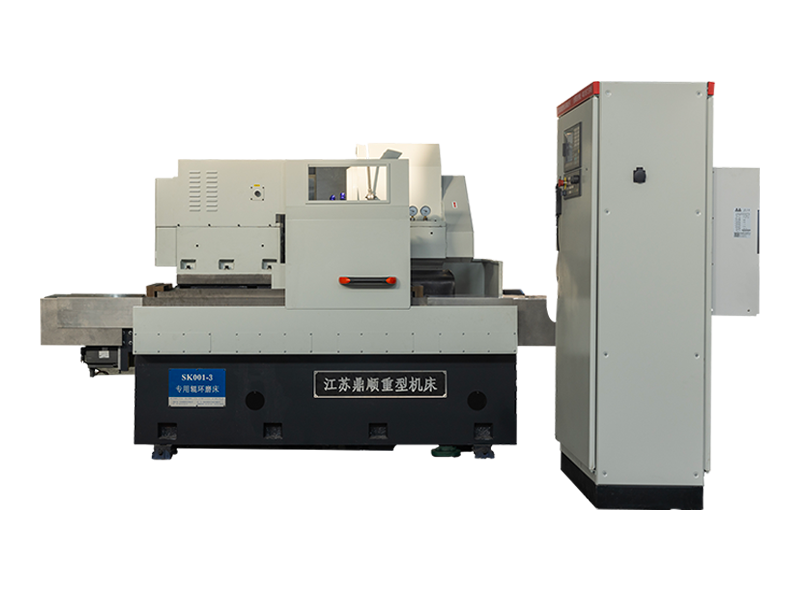
CNC roll ring grinders are precision machines designed to grind, shape, and finish roll rings used in various industrial applications. Roll rings are essential components in rolling mills, machinery, and manufacturing processes where high precision and surface quality are required. One of the key advantages of CNC roll ring grinders is their versatility—they can process a wide range of materials, ensuring high efficiency and accuracy regardless of the roll ring type.
Content
Steel roll rings are among the most commonly processed types on CNC roll ring grinders. They are widely used in steel rolling mills, paper mills, and aluminum processing, where durability and precision are critical. Steel roll rings are often made from alloyed or carbon steels that provide:
CNC roll ring grinders excel at handling steel roll rings, ensuring tight tolerances, smooth surface finishes, and consistent dimensions, which are essential for maintaining operational efficiency in rolling processes.
Cast iron roll rings are commonly used in applications that require vibration damping, high wear resistance, and dimensional stability, such as in paper and textile rolling equipment. CNC roll ring grinders can process cast iron effectively because of their rigid structure, precision control, and advanced cooling systems, which help prevent cracking or thermal deformation during grinding.
Key benefits of using CNC roll ring grinders on cast iron include:

For high-performance applications, such as metal forming, heavy industrial machinery, or aerospace components, tool steels and alloyed roll rings are often used. These materials offer enhanced hardness, wear resistance, and strength. CNC roll ring grinders are capable of processing these materials by:
In addition to standard metals, CNC roll ring grinders can also handle specialty materials such as stainless steel, high-chrome alloys, or even composite roll rings in niche applications. The machine’s programmable control system and customizable grinding cycles allow operators to adapt to different hardness levels, surface textures, and dimensions, ensuring flexibility across diverse manufacturing requirements.
Using a CNC roll ring grinder for different materials provides several benefits:
CNC roll ring grinders are versatile machines capable of processing a wide range of roll ring materials, including steel, cast iron, alloyed steels, tool steels, stainless steels, and specialty materials. The adaptability of CNC technology ensures high precision, consistent surface quality, and efficient production, regardless of the material’s hardness, brittleness, or size. This versatility makes CNC roll ring grinders indispensable in modern industrial applications, from steel and aluminum mills to paper production and heavy machinery manufacturing.